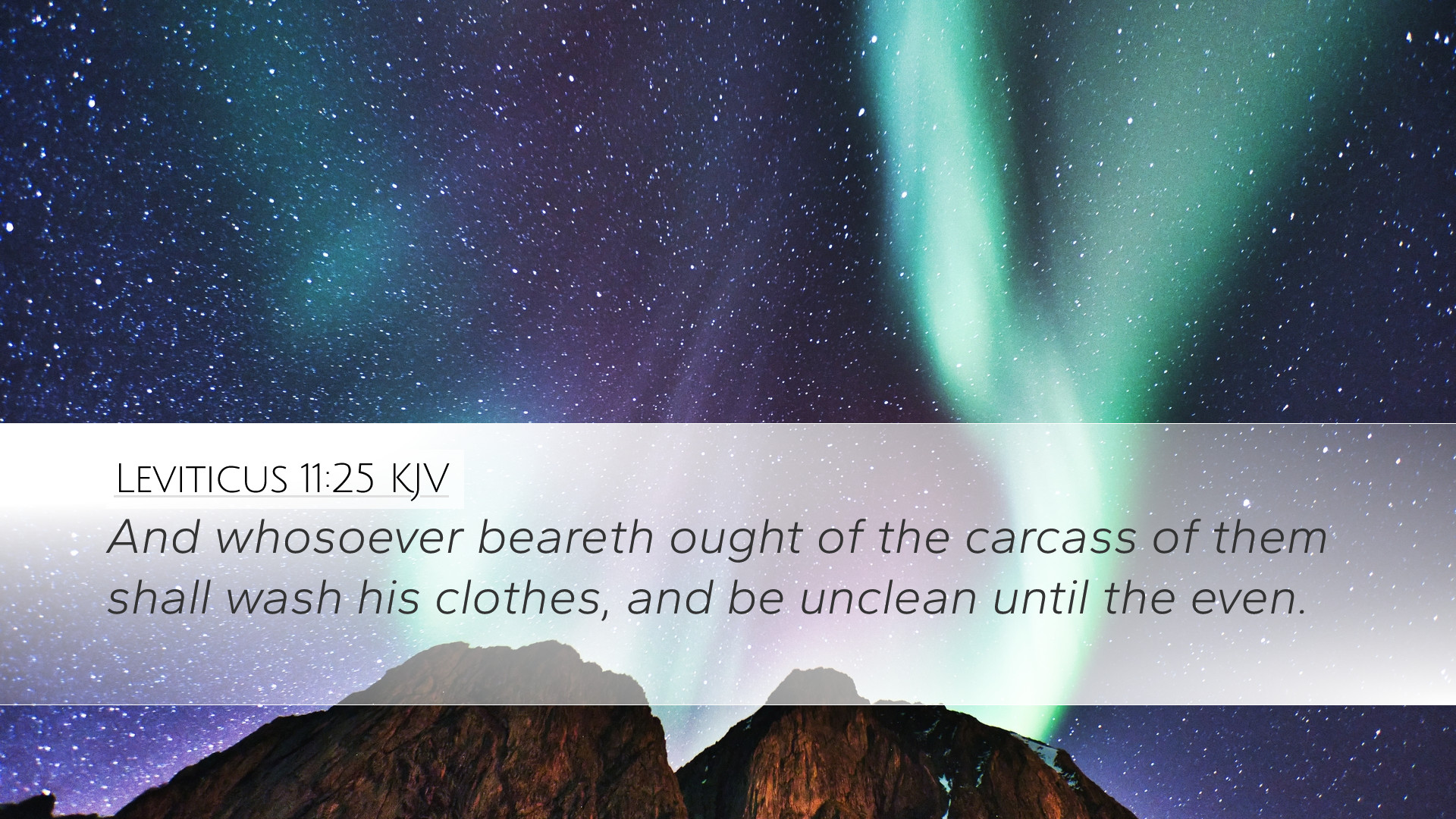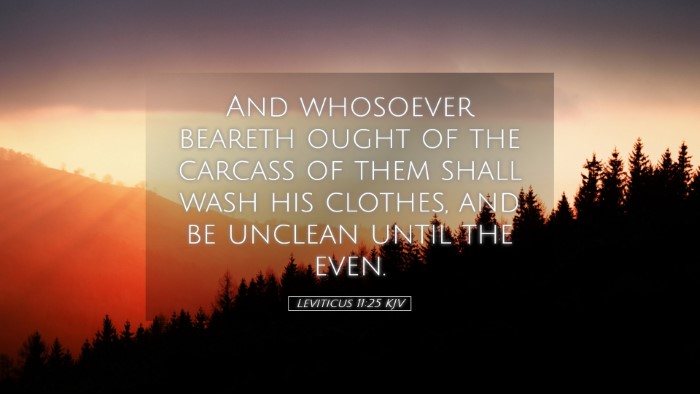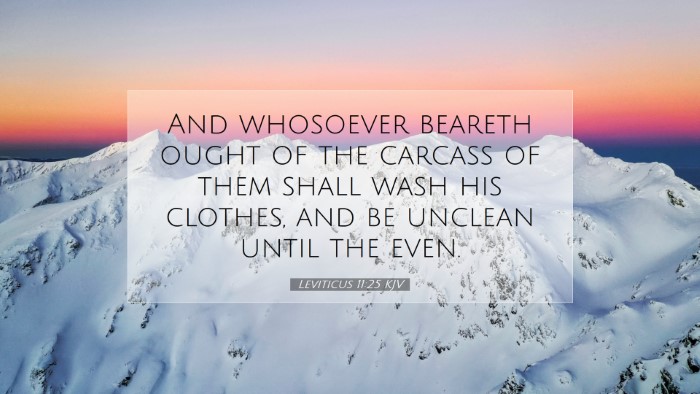Commentary on Leviticus 11:25
Bible Verse: Leviticus 11:25 - "And whosoever beareth aught of the carcase of them shall wash his clothes, and be unclean until the even."
Introduction
This verse is part of the dietary laws given to the Israelites, aimed at separating them from other nations and instilling a sense of holiness. The instructions in Leviticus serve both practical and spiritual purposes, reflecting God's desire for His people to be distinct and to maintain purity.
Commentary Insights
In analyzing Leviticus 11:25, we draw upon various public domain commentaries to understand its implications comprehensively.
Matthew Henry's Commentary
Matthew Henry emphasizes the significance of ritual cleanliness in the life of the Israelites. He notes that the washing of clothes symbolizes the need for spiritual purity. The act of touching the carcass itself made one unclean, reinforcing the idea that defilement can come through physical contact with dead things, which represent decay and sin.
- Purity in the Community: Henry reflects on how these laws contributed to a culture that prioritizes spiritual health and communal purity.
- Symbolism of Cleanliness: The requirement to wash clothes is representative of the broader biblical theme of cleanliness representing inner holiness, a precondition for approaching God.
Albert Barnes' Notes
Albert Barnes provides a detailed exposition on the ceremonial laws impacting the Israelite mindset. He comments on the practical aspects of this law, noting:
- Physical and Spiritual Separation: The washing indicates a clear physical separation from death, echoing the spiritual separation from sin and spiritual death.
- Uncleanness Duration: Being "unclean until the even" serves as a reminder that restoration requires time and intention, emphasizing the process of returning to a state of purity.
Adam Clarke's Commentary
Adam Clarke adds depth by exploring the broader implications of the laws of cleanliness. He identifies several key themes:
- Cultural Standards: Clarke argues that these laws established a distinct cultural identity for the Israelites, separating them from surrounding nations and their practices.
- Divine Command and Obedience: Following these commandments demonstrates obedience to a divine order that ultimately serves the welfare of the community.
- Moral and Ethical Teachings: Clarke posits that the laws, while ceremonial, point to a deeper moral code that governs human behavior and reverence before God.
Theological Reflection
The instructions in Leviticus 11:25 lead us to profound theological reflections about holiness. As these ancient regulations may seem archaic in a contemporary context, their underlying principles about cleanliness and moral separation remain relevant.
Both Henry and Barnes indicate that the issue of holiness still applies today — believers are called to be separate from sin, cultivating a life that is vibrant and free from the decay associated with spiritual uncleanness. This verse then becomes a lens through which one examines inner purity.
Practical Application
For pastors, students, and theologians, Leviticus 11:25 prompts various practical applications:
- Teaching on Holiness: Leaders in faith communities can use this text to teach about the nature of holiness and the necessity of being set apart for God.
- Community Awareness: It serves as a reminder that the community's health depends on the individual members adhering to standards of purity and moral excellence.
- Reflecting on Spiritual Practices: Practitioners can reflect on their spiritual practices and relationships to ensure they do not inadvertently engage with 'carcasses' of sin.
Conclusion
Leviticus 11:25 encapsulates more than just a dietary law; it presents a visual and practical understanding of holiness. Through the insights from Matthew Henry, Albert Barnes, and Adam Clarke, one can see the richness of the text as it informs our spiritual life today. This verse challenges believers to evaluate their own lives, encouraging a pursuit of holiness that aligns with divine commands.


